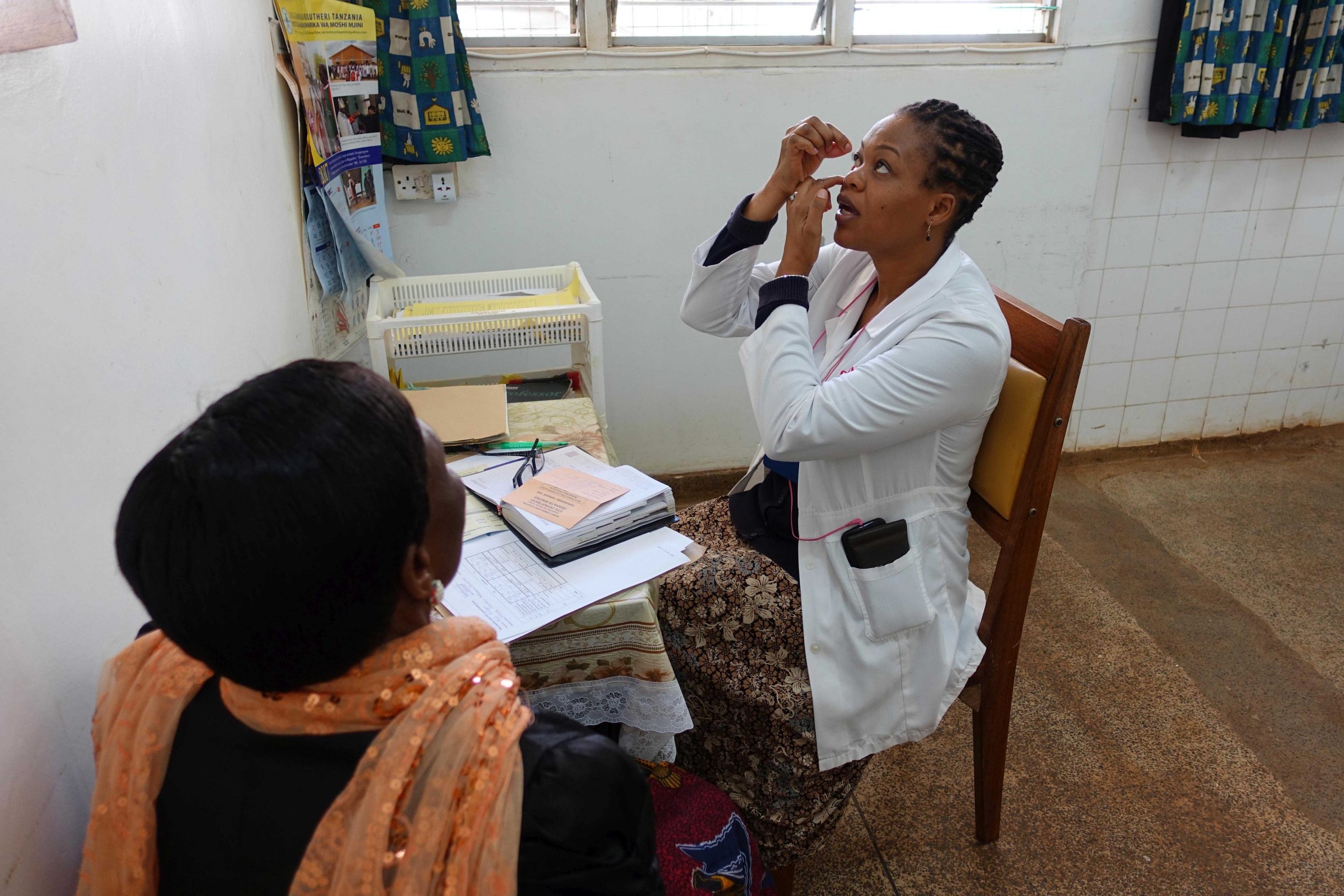The Glaucoma Network

Background
Glaucoma is the second most common cause of blindness worldwide. People with untreated glaucoma suffer from irreversible, progressive loss of sight. The disease is characterised by progressive loss of visual field, with pathological cupping of the optic disc and often (but not always) increased pressure in the eye. Early stages affect the field of vision and are often not noticed by the patient. The final stage is irreversible absolute blindness. Glaucoma treatment is primarily to lower the intraocular pressure to a ‘safe’ level through eye drops and/or laser treatment and/or surgical interventions. The highest prevalence and incidence of glaucoma exists in Sub-Saharan Africa and the Caribbean.
The Challenge
The key requirements to tackle glaucoma blindness in these regions are early identification of people with glaucoma and effective long-term treatment.
Addressing the Challenge
The Glaucoma Clinical and Research Network (Glaucoma-NET) was established in 2021 to improve diagnosis and treatment with the aim of preserving and maximising the sight of people with glaucoma through a range of activities including knowledge-sharing and development of clinical services. These are geared towards reducing vision loss and blindness caused by glaucoma.
The network has had attendees from the following countries: Burkina Faso, Cameroon, Canada, Ethiopia, The Gambia, Ghana, Germany, Kenya, Mozambique, Nigeria, South Sudan, Tanzania, Uganda, UK.
Overall Aim
The aim of the Glaucoma-NET is preserving sight of people with glaucoma.
Objectives
The objectives of the Glaucoma-NET are:
- to develop meaningful partnerships between glaucoma centres in high/middle/low-income countries
- to share knowledge on best practice between clinicians, centres and countries
- to agree shared guidelines and protocols
- to develop specific 3-year action plans (revolving) to improve glaucoma screening and treatment services
Activities
The key activities of Glaucoma-NET are:
1. Glaucoma-NET service development programme – bringing together key stakeholders at national and international levels to establish national frameworks, glaucoma programme guidelines and action plans for development of services
2. Development and implementation of a Best Practice Toolkit – in 2021 the Toolkit for Glaucoma Management in sub-Saharan Africa was launched. The Glaucoma-NET national teams have been developing and finalising the toolkit to individual national contexts, including a Nigerian National Glaucoma Guideline and Toolkit
3. Glaucoma Decision-Intervention Support Cluster for online case discussion and training sessions (The Glaucoma DISC)
4. Glaucoma Clinical Training – includes centre twinning/partnerships for team training and sustainable development of services
5. GLAucoma Simulation-based Surgical (GLASS) training – we will scale up the surgical skills training programme, which includes a course for glaucoma surgery to support rapid acquisition of glaucoma surgical competence and improve patient safety. This training programme was developed through a partnership between the International Centre for Eye Health and multiple training institutions in Africa involved in the Glaucoma-NET
6. Collaborative Multi-Country Research to address key issues in glaucoma management in LMICs
7. Advocacy for improved resources for glaucoma care in LMICs, including patient groups
Leadership, Management and Coordination
The overall strategy and activities of the Glaucoma-NET is overseen by a Steering Group which includes:
1. The VISION 2020 LINKS Programme team, who provide management oversight, monitoring/reporting support, administrative support and IT/data management.
2. Academic and technical input from an international team of glaucoma specialists: Fatima Kyari (Team Lead), Winnie Nolan, Heiko Philippin and Dan Kiage.
